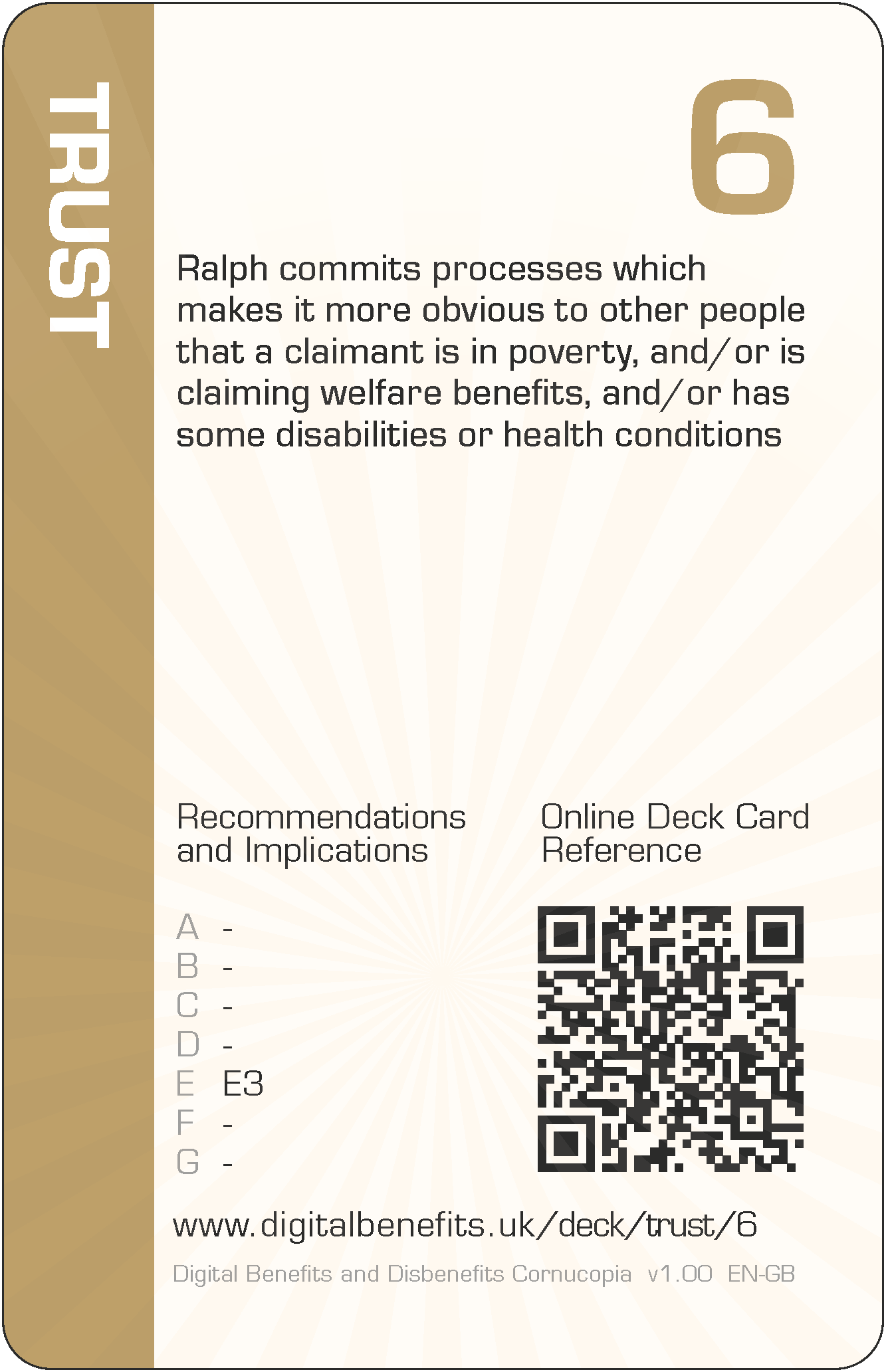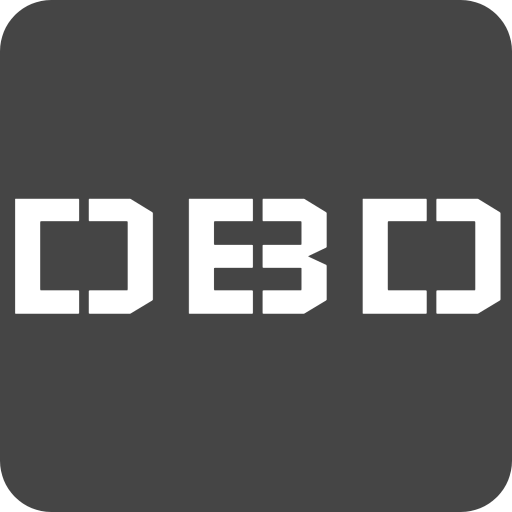Trust 6 (TR-6) Card
DBD Cornucopia > Deck > Trust > 6
Card Details - Six of Trust
Abbreviation
TR-6
Card's focus
The focus of this card is personal exposure
Threat to claimants
Ralph commits processes which makes it more obvious to other people that a claimant is in poverty, and/or is claiming welfare benefits, and/or has some disabilities or health conditions

Threat to claimants
Ralph commits processes which makes it more obvious to other people that a claimant is in poverty, and/or is claiming welfare benefits, and/or has some disabilities or health conditions.
Some examples of how this threat could lead to harms (negative effects on claimants)
The design recommendations and implications relevant to the card are listed below in the next section, but even those can be somewhat abstract and difficult to think about during practical day-to-day implementation. Therefore, some example harms are provided to complement the more formal research outputs. These examples are unique per card, and are only published on these web pages (i.e. in no other project outputs).
- Claimants who have to visit a public library to use a computer know that this makes it more obvious they are claimants (e.g. by having to take time out to go to the library, by being seen at the library) which makes people less likely to claim what they are eligible for
- Enforced regular trips to GP practices to request and collect fit notes (formerly called sick notes) expose to others that particular people are welfare benefit claimants adding to their feeling of shame
- Housing landlords are informed that their tenants have started claiming welfare benefits, before the tenants can discuss the matter with them themselves, risking them being evicted from their homes
- A worker's status as a claimant becomes exposed to their co-workers because of the system's need for claimants to repeatedly access the online service to respond to messages or to provide information, and they become stigmatised, losing opportunities to improve their employment situation
- Supposed claimants are treated with suspicion and subjected to pervasive surveillance by their neighbours, affecting claimants' mental health
The examples are to help understand the threat on the card, not to suppress thinking and innovation. Incorporating these examples exactly, or closely matching ones, should be scored down when playing DBD Cornucopia as a game.
Applicable design recommendations and implications
These are reproduced here from Research Briefing N
Design systems which support the division of labour with claimants' ecosystems
- Recognise changing trust effects in design of digital systems
Claimants have different opinions about the trustworthiness and motivations of the state, unfamiliar claimants and other actors, which affect their tolerance to accept harms, requiring flexibility in choosing assistance and recognition how this trust can change over time: prior to making a claim, while maintaining a claim, and after ceasing to be a claimant.
General Notes
Card values (i.e. '6' for this card) are for game play and are not correlated with the severity of harm. This is because threats cannot be ranked directly since they can affect individuals in different ways due to situations and circumstances, or affect fewer or more claimants, or the harms can arise in claimants' support networks and wider society.
The threat description uses a person's name as the "attacker" (i.e. 'Ralph' for this card), which can be thought of someone involved with implementation. They could have any role which influence digitisation. So they could be a database administrator, or a copy writer, or a quality assurance specialist, etc, or all of these. Everyone could have some influence on the claimant threat described. The names were randomly selected from those currently most popular as given names for boys and girls (UK Office for National Statistics).
The example harms provided are drawn from the research data (which explored not only parts of existing services but also the effects of possible changes to those), from the author's own knowledge of web application development and testing, the author's own experience of helping citizens to claim Universal Credit (UC) and Personal Independence Payment (PIP), and from suggestions submitted by other people (make a suggestion). The threats and example harms do not necessarily exist in the current UC or PIP deployments or in ecosystems around those services, but they might well do.
All the cards in this Trust suit are: 2 3 4 5 6 7 8 9 10 J Q K A
The other suits in the deck are: Scope, Architecture, Agency, Porosity and Cornucopia (plus Jokers).
